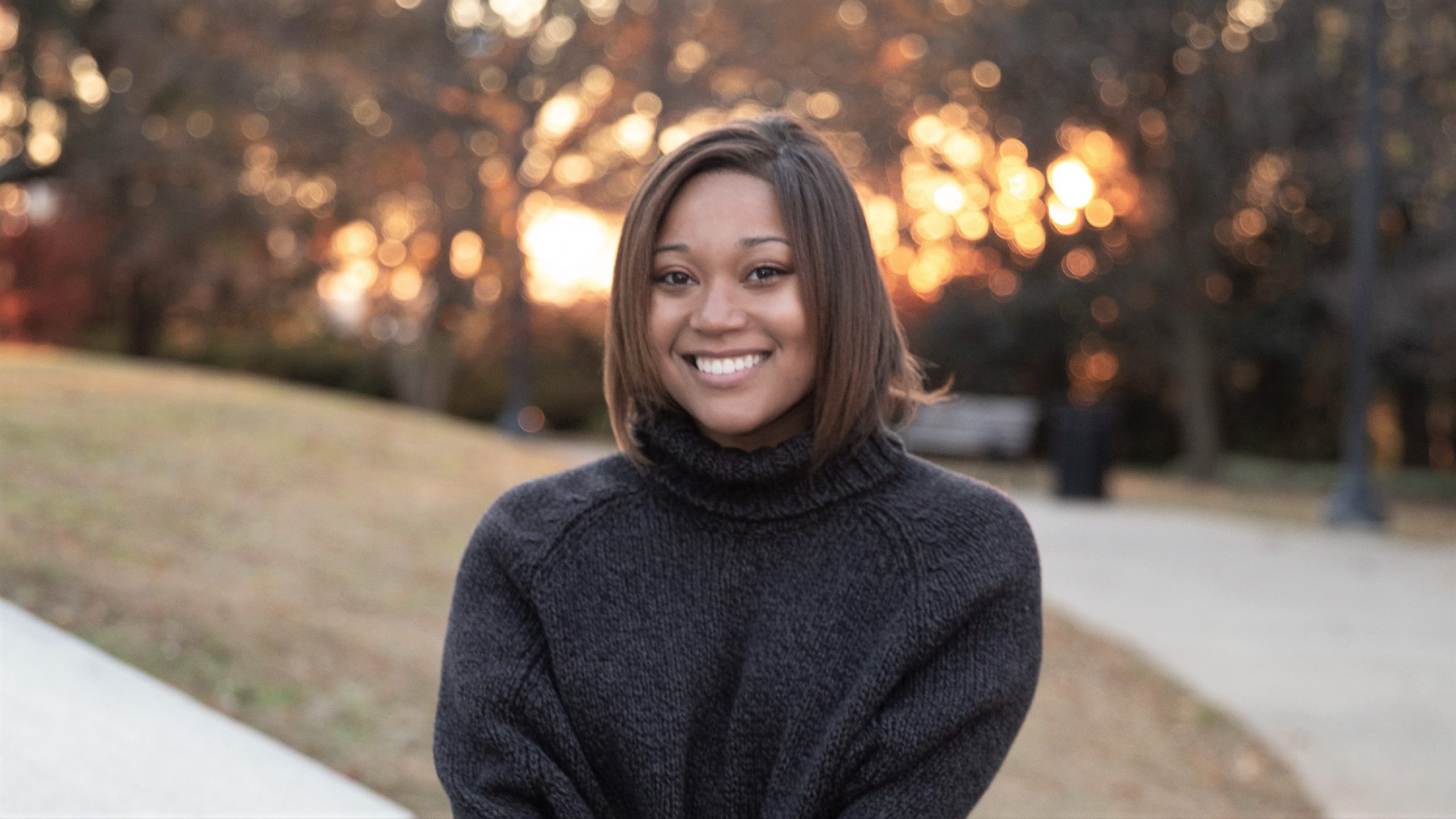Researcher Spotlight – Tira Beckham

2020-21 Global Change Fellow
Masters Student, Department of Forestry and Environmental Resources
Advisors: Dr. Bethany Cutts and Dr. Louie Rivers
Every year the Southeast Climate Adaptation Science Center funds a multi-disciplinary cohort of Global Change Fellows representing colleges across NC State University. Here are some highlights about 2020-21 Fellow, Tira Beckham, and the applied research she’s conducting.
About You
What do you study?
I am in my first year of my MS in Natural Resource Policy and Administration in the College of Natural Resources. I will also be getting my Master’s Certificate in Policy Analysis.
What (or who) influenced you to go into this field of study?
I became interested in environmental policy – especially in the context of environmental and climate justice – after working with low-income communities for both local and state governments. During undergrad, I worked as an environmental grant assistant for the city government. I managed projects funded by federal grant programs and distributed local business grants. In working with local citizens and business owners, I was able to interact with and serve a variety of people from very different backgrounds. I learned of the political, social, and economic struggles faced by low-income communities and communities of color. I decided there that I would like to dedicate my life to serving and providing opportunities for vulnerable communities. More recently, I worked with communities across North Carolina as well as a number of state, local, and federal representatives to implement Governor Cooper’s Executive Order 80: North Carolina’s Commitment to Address Climate Change and Transition to a Clean Energy Economy.
About Your Research
Who will benefit from your research?
More than anything, I would like for my research to benefit those who are suffering with political, economic, and social disparities while also attempting to recover from and adapt to the changing climate. By working with these communities to build resilience plans and strategies that address their specific needs, we can help state and federal governments to meet the needs of ALL citizens.
How can your research be used to inform management decisions?
Identifying the barriers to resiliency and adaptation in traditionally excluded communities will help state and federal agencies to properly distribute funds and design programs that will adequately represent the needs of rural communities. This research also has implications for the local and regional economies in rural communities with agriculture-based economies. The development of an interactive participatory framework for local and state governments can lead to improved communication between local governments and rural inland communities and more deliberate climate resilience actions and decisions within these communities. As the climate emergency rises to the top of the political agenda for many states, nationally, and internationally, it is important that policy documents and frameworks that foster communication and reciprocity between communities and governing entities be pushed to the forefront of our approach to the changing climate.
About Your Global Change Fellow Experience
What has been the most rewarding part or your favorite part of being a SE CASC Global Change Fellow?
The most rewarding part of being a Global Change Fellow is the opportunity to meet new people – students, faculty, and professionals alike – working to address the climate crisis from various fields.
What advice would you give to an incoming Global Change Fellow to get the most out of their experience?
This is a hard question to answer, as this year’s cohort of Fellows is not like the others. Due to the COVID-19 pandemic, we are sadly unable to access a number of the CASC resources or activities available to Fellows, however, we are still able to “meet” and gain insights and knowledge from a number of CASC partners who come to speak from their field of expertise. Speakers within the field can help to inform, provide resources for, or contribute to your research, and these relationships should be fostered.
